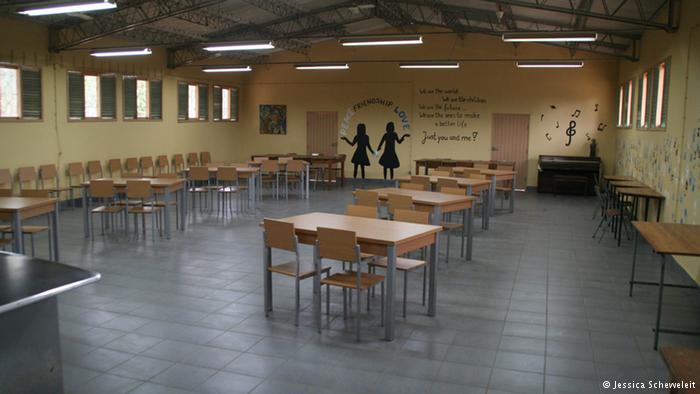Mozambique: MozYouth Foundation signs MoU with Vodacom and M-Pesa
Preventing sexual harassment in Mozambique’s schools

DW (File photo) / Library in a Matola school
The Mozambican government and its civil partners are expressing concern about the sexual harassment of more than 1,500 girls in the country’s schools this year.
Cases of sexual harassment against girls in Mozambican schools, mostly perpetrated by teachers, are rising to alarming numbers in the face of indifference on the part of the authorities tasked with penalizing perpetrators.
The girls submit to harassment in exchange for good results. The situation is also cited as contributing to the increase of early marriage in the community.
The government and its partners are worried about the situation and are promising to continue working to address the phenomenon.
According to organizations working to combat sexual abuse and premature marriage in Mozambique, more than 1,500 girls will have experienced sexual harassment in the country’s schools during the year about to end.
Rosa Fernando, who lives in Nampula, is one of them. Without revealing the school or detailing the facts, she says she has been a victim. She says that the practice is often carried out by teachers who promise to pass the students in return or threaten them with failing the year if they do not accede to their wishes.
“In schools, teachers often harass students in exchange for passing them to the next grade, and the girls make it easy because they do not study, relying on the harassment.”
Rosa has a message for the girls. “We have learned that we have to start [our sex life] after 18 years and many times this does not happen. My advice is to leave it for later,” she says.
Early Pregnancy and Premature Marriage

Harassment and other forms of sexual abuse are cited as the main factors contributing to an increase in early pregnancy and premature marriage in Mozambique.
According to the 2011 Demographic and Health Survey, 48 percent of Mozambican girls marry before the age of 18 and 14 percent before 15, giving Mozambique the 11th highest rate in the world. In Eastern and Southern Africa, Mozambique occupies the second place. Extreme poverty as well as cultural and traditional factors are the main reasons.
Agira is 17 years old. Last year she married a 25-year-old and the relationship resulted in her first child. Very shy, Agira says that her marriage forced her to leave school when she was in the sixth grade. She currently lives with her husband.
“Now [next year] I want to learn how to read and write. I advise other girls not to be in a hurry to get pregnant or marry. At the age of 16 or 17, it is too early, we must study,” she says.
630,000 reports of violence, harassment and sexual abuse

Last year, the Linha Fala Criança Association [Speak Child hotline], an organization that works to protect young mothers, registered about 630,000 thousand cases of violence, harassment and sexual abuse.
According to organization program manager Calisto Cuambe, the most common cases are “physical violence, then rape and lack of payment of child support by a parent”.
Not only girls are harassed in Mozambique – boys are too. Previously, boys seldom reported situations from a feeling of shame, but lately they have gained more courage, in part due to the association’s sensitization work, Cuambe says.
“Comparing the sexes, we used to get more calls from girls than from boys, but there is now a tendency for boys to report what happens both in schools and in communities.”
Make every effort to find solutions

According to Executive Director Zélia Menete, the Foundation for Community Development also works to combat sexual harassment and early marriage, but she says that to achieve results it is necessary that “the government of Mozambique and civil society in general spare no effort in finding solutions to current challenges”.
In 2015, the Mozambican government approved the National Strategy for Preventing and Combating Prematurity, an important instrument for the protection of children, especially girls. But it seems that little is changing on the ground: indexes are constantly increasing, experts say.
“Investing in a girl is investing in a nation”
In the meantime, the Mozambican government has reiterated its commitment to continuing working with NGOs and partners to raise awareness, according to Victor Borges, provincial governor of Nampula. “To invest in a girl is to invest in a nation,” he says.
The Swedish Embassy in Mozambique is promoting a ‘Rapariga Biz’ program aimed at reducing sexual harassment and early marriage in Mozambican communities.
The program will raise awareness of the problems among children and young people. The goal is to convince children that it is worth staying in school and starting a career before marrying and having children.












Leave a Reply
Be the First to Comment!
You must be logged in to post a comment.
You must be logged in to post a comment.